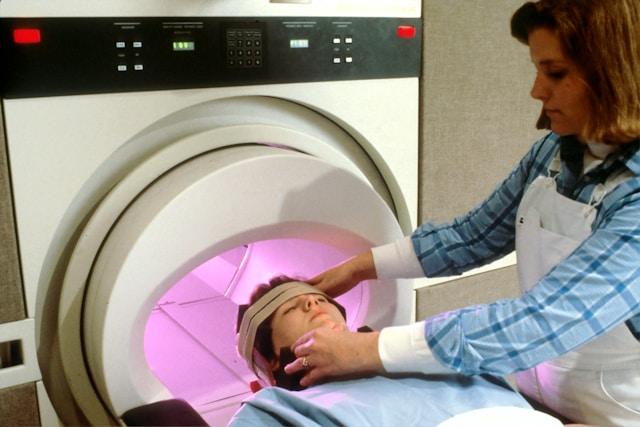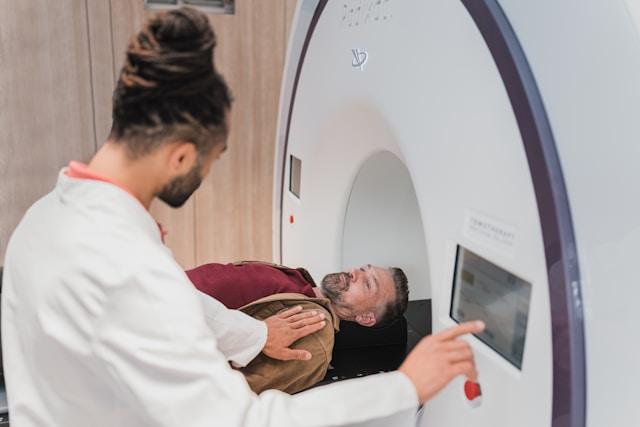Surgical treatments for nerve pain have evolved significantly over time, offering hope to those suffering from debilitating conditions. Understanding how nerve pain is treated surgically can provide insights into the advancements in medical science. Surgical interventions aim to alleviate nerve pain by addressing underlying issues related to the nervous system, neurons, and axon that cannot be resolved through non-invasive methods. By exploring the various surgical techniques and procedures available today, individuals experiencing nerve pain can make informed decisions about their treatment options. Stay tuned to discover the innovative approaches and historical context behind surgical treatments for nerve pain.
Key Takeaways
-
Consider Non-Surgical Options First: Before opting for surgery, explore non-invasive treatments like physical therapy or medication to manage nerve pain effectively.
-
Collaborate with a Pain Management Team: Engage with a multidisciplinary team of specialists including surgeons, physical therapists, and pain management experts to create a comprehensive treatment plan tailored to your needs.
-
Recovery is a Process: Understand that the recovery journey post-surgery, influenced by factors, may vary for each individual. Follow your healthcare provider’s instructions diligently to optimize healing and reduce complications.
-
Identify Suitable Candidates: Surgical interventions for nerve pain are beneficial for individuals with specific conditions that have not responded to conservative treatments. Consult with your healthcare provider to determine if surgery is the right option for you.
-
Stay Informed about Advances: Stay updated on the latest advancements in surgical techniques and treatment options for nerve pain to make well-informed decisions about your healthcare.
-
Personalize Your Treatment Plan: Work closely with your healthcare team to develop a personalized surgical treatment plan that considers your unique medical history, preferences, and goals for pain management.
Understanding Nerve Pain
Causes and Types
Nerve pain can stem from various causes, including injuries, infections, and conditions like diabetes. These issues can damage the small nerves in the nervous system, leading to persistent pain. Different types of nerve pain exist within the nervous system, such as neuropathic pain and radiculopathy, each with distinct characteristics. Underlying medical conditions like arthritis or multiple sclerosis can trigger nerve pain by affecting nerve function and the nervous system.
Symptoms and Diagnosis
Common symptoms of nerve pain include burning sensations, tingling, and shooting pains along the affected nerves. To diagnose nerve pain in the nervous system, healthcare providers may conduct tests like nerve conduction studies or MRI scans to pinpoint the source of the pain accurately. Early diagnosis is crucial for effective treatment as it allows for timely intervention to prevent further nerve damage.
Treatment Overview
Non-surgical treatments for nerve pain may involve medications like antidepressants or anti-seizure drugs, physical therapy, or nerve blocks to alleviate symptoms. In cases where conservative treatments fail to provide relief, surgical options may be considered. Surgery plays a vital role in treating severe nerve pain by addressing underlying issues such as nerve compression or trauma. Personalized treatment plans are essential in managing nerve pain effectively, considering factors like the patient’s overall health and specific symptoms.
Surgical Options for Nerve Pain
Nerve Repair Surgery
Nerve repair surgery involves meticulously reconnecting the damaged nerves to restore function and alleviate pain. Surgeons aim to improve nerve communication and promote healing. The procedure’s success depends on the extent of nerve damage and the patient’s overall health. Following surgery, patients undergo intensive physical therapy to regain strength and mobility.
Nerve Grafting
Nerve grafting is a technique that involves replacing damaged nerve segments with healthy donor nerves. Surgeons utilize different types of nerve grafts, including autografts (using the patient’s nerves) or allografts (donor nerves). The procedure aims to promote nerve regeneration and improve functionality. However, there are risks such as infection and potential rejection of donor nerves.
Nerve Transfer
Nerve transfer surgery entails redirecting a healthy nerve from a less critical muscle to an area affected by nerve pain. This procedure aims to restore movement and sensation in areas where nerves have been severely damaged. Nerve transfer is often recommended for conditions like brachial plexus injuries or peripheral nerve damage. Success rates vary based on the specific condition and individual factors.
Deep Dive into Surgical Procedures
Pre-surgery Preparation
Patients undergoing nerve pain surgery must follow specific steps before the procedure. Firstly, they need to undergo pre-operative tests and evaluations to assess their overall health and readiness for surgery. These tests help the medical team understand any potential risks or complications that may arise during the operation. Following these assessments is crucial in ensuring a successful surgical outcome.
Patients are required to strictly adhere to pre-surgery instructions provided by their healthcare providers. These instructions typically include guidelines on fasting before surgery, medications to avoid, and other preparatory measures. By following these guidelines diligently, patients can minimize the risks associated with surgery and improve their recovery process post-operation.
During the Surgery
Nerve pain surgery involves several key steps that are critical for its success. The surgical team begins by making small incisions at precise locations to access the affected nerve in tight spaces within the body. Through these incisions, the surgeons perform the necessary procedures to alleviate the patient’s nerve pain effectively.
During the procedure, each member of the surgical team plays a crucial role in ensuring that the operation proceeds smoothly. From assisting in maintaining a sterile environment to providing necessary instruments, every team member contributes to the overall success of the surgery. Advanced surgical techniques are employed to repair damaged nerves and relieve the patient from debilitating pain.
Anesthesia Choices
Various anesthesia options are available for nerve pain surgery, each with its benefits and risks. Patients may opt for local anesthesia, which numbs only a specific area of the body, or general anesthesia, which induces unconsciousness throughout the procedure. The choice of anesthesia depends on factors such as the complexity of the surgery and patient preferences.
Local anesthesia offers advantages such as reduced recovery time and fewer side effects compared to general anesthesia. However, it may not be suitable for all types of nerve pain surgeries due to its limited scope of effect. On the other hand, general anesthesia ensures complete comfort and unconsciousness during complex procedures but carries a higher risk profile.
Recovery Journey
Immediate Aftercare
After nerve pain surgery, immediate aftercare is crucial. Patients are typically monitored closely in the recovery room. Pain management includes medications to alleviate discomfort and promote healing. Following post-operative instructions diligently is vital for a successful recovery.
Patients are advised to keep the surgical site clean and dry. Avoiding strenuous activities that strain the affected area is essential during the initial healing phase. Elevating the limb can help reduce swelling and improve circulation post-surgery.
-
Immediate Aftercare:
-
Close monitoring in recovery
-
Pain management with medications
-
Strict adherence to post-operative instructions
-
Long-term Rehabilitation
Long-term rehabilitation plays a significant role in restoring nerve function after surgery. The process involves gradual reintroduction of movement and exercises tailored to each patient’s needs. Physical therapy sessions focus on strengthening muscles, improving flexibility, and enhancing overall mobility.
Rehabilitation aims to promote nerve regeneration and enhance functional recovery. Patients may undergo nerve conduction studies to assess progress and identify areas needing further attention. Long-term rehabilitation is crucial for optimizing nerve regrowth and functional outcomes.
-
Physical therapy sessions focus on:
-
Strengthening muscles
-
Improving flexibility
-
Enhancing overall mobility
-
Who Benefits from Surgery
Ideal Candidates
Patients with persistent and severe nerve pain that does not respond to conservative treatments are ideal candidates. Surgical intervention becomes necessary when non-invasive methods fail to alleviate symptoms. Ideal candidates for nerve pain surgery typically exhibit neuropathic pain symptoms, such as burning, tingling, or shooting pain.
Moreover, individuals who have undergone extensive diagnostic testing to pinpoint the exact source of their nerve pain are more likely to benefit from surgical procedures. The precise identification of the affected nerve or nerves is crucial for successful outcomes. Candidates must also have realistic expectations about the potential outcomes of surgery and be committed to post-operative rehabilitation protocols.
Risk and Considerations
Nerve pain surgery, like any surgical procedure, carries inherent risks and potential complications. Patients considering surgery should be aware of possible adverse outcomes, including infection, bleeding, nerve damage, or scar tissue formation. Factors such as the patient’s overall health condition, age, and the complexity of the surgical approach can influence the success of the procedure.
Pre-existing medical conditions such as diabetes or autoimmune disorders may impact the healing process and overall recovery. Informed consent is essential before undergoing nerve pain surgery to ensure that patients understand the potential risks involved. A thorough risk assessment by the healthcare team helps in evaluating each patient’s individual circumstances and tailoring treatment plans accordingly.
Multidisciplinary Approach to Pain Management
Role of Physical Therapy
Physical therapy plays a crucial role in nerve pain recovery by focusing on improving mobility and function. Through targeted exercises and techniques, physical therapy helps enhance nerve function by promoting circulation and reducing inflammation. Incorporating physical therapy into the treatment plan can lead to increased strength and flexibility, aiding in overall pain relief.
-
Benefits of Physical Therapy:
-
Enhances mobility and functionality
-
Reduces inflammation and promotes circulation
-
Improves strength and flexibility for long-term pain management
-
Psychological Support
Psychological support is essential for patients with nerve pain as mental health significantly influences the recovery process. Patients experiencing chronic pain may face emotional challenges that can impact their overall well-being. Counseling and therapy play a vital role in managing nerve pain by addressing anxiety, depression, and stress, ultimately improving the patient’s quality of life.
-
Importance of Psychological Support:
-
Addresses emotional challenges associated with chronic pain
-
Improves overall well-being and quality of life
-
Helps manage anxiety, depression, and stress for better pain management
-
Medication Management
Medications are commonly used in treating nerve pain, providing relief from symptoms such as shooting or burning sensations. Different types of medications, including antidepressants, anticonvulsants, and opioids, are prescribed based on the severity of the condition. Adherence to medication regimens is crucial for effective pain management and ensuring optimal outcomes for patients.
-
Types of Medications for Nerve Pain:
-
Antidepressants like amitriptyline or duloxetine
-
Anticonvulsants such as gabapentin or pregabalin
-
Opioids for severe cases under strict medical supervision
-
Planning for Surgical Treatment
Consultation and Evaluation
When considering surgical treatment for nerve pain, patients typically start with a consultation. During this process, the surgeon will assess the severity of the condition, discuss potential surgical options, and address any concerns or questions from the patient. The consultation is crucial as it allows both the patient and the surgeon to establish clear communication and set realistic expectations for the surgery.
Before proceeding with surgical treatment, a thorough evaluation is essential. This evaluation may include diagnostic tests, imaging studies, and consultations with other specialists if needed. Evaluating the extent of nerve damage, identifying the underlying cause of pain, and assessing overall health are critical steps in ensuring the success of the surgery. A comprehensive evaluation helps in tailoring the surgical approach to meet the specific needs of each patient.
Effective patient-doctor communication plays a pivotal role in planning surgical treatment for nerve pain. Clear communication ensures that patients understand their diagnosis, treatment options, potential risks, and expected outcomes. It also allows patients to express their preferences and concerns regarding the surgery. By fostering open communication, both patients and doctors can work together towards achieving successful surgical outcomes.
Choosing the Right Surgeon
Selecting a qualified surgeon is paramount when opting for surgical treatment for nerve pain. Patients should look for surgeons who specialize in treating nerve conditions and have extensive experience in performing relevant procedures. Checking the surgeon’s credentials, including board certification and training background, can help ensure expertise in handling complex nerve surgeries.
Experience and expertise are key factors to consider when choosing a surgeon for nerve pain surgery. Surgeons with a proven track record of successful outcomes in similar cases are more likely to deliver satisfactory results. Patients should inquire about the surgeon’s experience with specific procedures related to nerve pain treatment to gauge their proficiency accurately.
Researching and evaluating potential surgeons is crucial before undergoing surgical treatment for nerve pain. Patients can seek recommendations from healthcare providers or trusted sources, read reviews from previous patients, and schedule consultations with multiple surgeons to compare approaches and recommendations. Taking time to select a skilled and experienced surgeon increases the likelihood of a successful surgical outcome.
Financial Planning
When preparing for surgical treatment for nerve pain, understanding the financial aspects is essential. Patients should inquire about insurance coverage for surgical procedures related to nerve pain management to determine out-of-pocket costs. Some insurance plans may cover certain aspects of surgery, while others may require prior authorization or additional documentation.
Exploring resources for financial assistance or payment plans can help alleviate financial burdens associated with surgical treatment for nerve pain. Patients can inquire about available grants, scholarships, or charitable organizations that provide support for medical expenses. Discussing payment options with healthcare providers or hospitals can help create a feasible financial plan tailored to individual needs.
Success Stories and Advances in Treatment
Patient Testimonials
Patients who underwent nerve pain surgery often share inspiring stories of recovery. One patient, Sarah, experienced debilitating sciatic nerve pain for years. After undergoing surgery, she regained mobility and could enjoy daily activities again. Another patient, John, suffered from carpal tunnel syndrome, impacting his work and hobbies. Following surgery, he noticed a significant reduction in pain and improved hand function.
These success stories emphasize the positive outcomes of surgical treatment for nerve pain. Patients like Sarah and John express gratitude for regaining their quality of life post-surgery. Before the procedure, they faced challenges performing simple tasks due to persistent pain. However, after surgery, they experienced relief and a renewed sense of well-being.
Research and Innovations
Recent advancements in nerve pain treatment have led to groundbreaking surgical techniques. Researchers are exploring novel approaches to target specific nerves accurately, reducing the risk of complications. Innovative technologies such as neuromodulation devices offer non-invasive options for managing chronic nerve pain effectively.
The future of surgical treatment for nerve pain looks promising with ongoing research focusing on enhancing patient outcomes. Scientists are investigating growth factors that promote nerve regeneration post-surgery, potentially speeding up recovery times. Advancements in minimally invasive procedures aim to minimize scarring and reduce recovery periods for patients undergoing nerve pain surgery.
Final Remarks
You’ve learned about surgical treatments for nerve pain, the recovery process, and the importance of a multidisciplinary approach to pain management. Success stories and advancements in treatment have showcased the positive impact surgery can have on those suffering from nerve pain. Now, armed with this knowledge, you can make informed decisions about your health and well-being.
Take the next step by consulting with healthcare professionals to explore surgical options for your nerve pain. Your journey to relief starts with understanding your choices and taking proactive steps towards a pain-free life. Embrace the possibilities that surgical treatments offer and pave the way for a future free from the constraints of nerve pain.
Frequently Asked Questions
How is nerve pain diagnosed?
Nerve pain is diagnosed through a combination of physical exams, medical history review, and diagnostic tests like MRI or nerve conduction studies. A specialist will assess symptoms, perform tests to locate the issue accurately, and determine the best course of treatment.
What are common surgical options for treating nerve pain?
Surgical treatments for nerve pain include decompression surgeries, nerve repair procedures, spinal cord stimulation, and nerve blocks. These procedures aim to alleviate pressure on nerves, repair damaged nerves, or disrupt pain signals to provide relief from chronic pain.
Who can benefit from surgical treatment for nerve pain?
Individuals experiencing severe or debilitating nerve pain that significantly impacts their quality of life may benefit from surgical interventions. Patients who have not responded well to conservative treatments such as medications or physical therapy could be candidates for surgical solutions.
What is the recovery process like after undergoing surgery for nerve pain?
Recovery after nerve pain surgery varies depending on the specific procedure performed. Generally, patients can expect a period of rest followed by physical therapy and gradual return to normal activities. It’s crucial to follow post-operative instructions carefully to optimize healing and outcomes.
How does a multidisciplinary approach help in managing nerve pain before and after surgery?
A multidisciplinary approach involves collaboration among various healthcare professionals like neurologists, surgeons, pain management specialists, and physical therapists. This comprehensive strategy ensures that patients receive holistic care addressing all aspects of their condition before and after surgery for optimal outcomes.





















